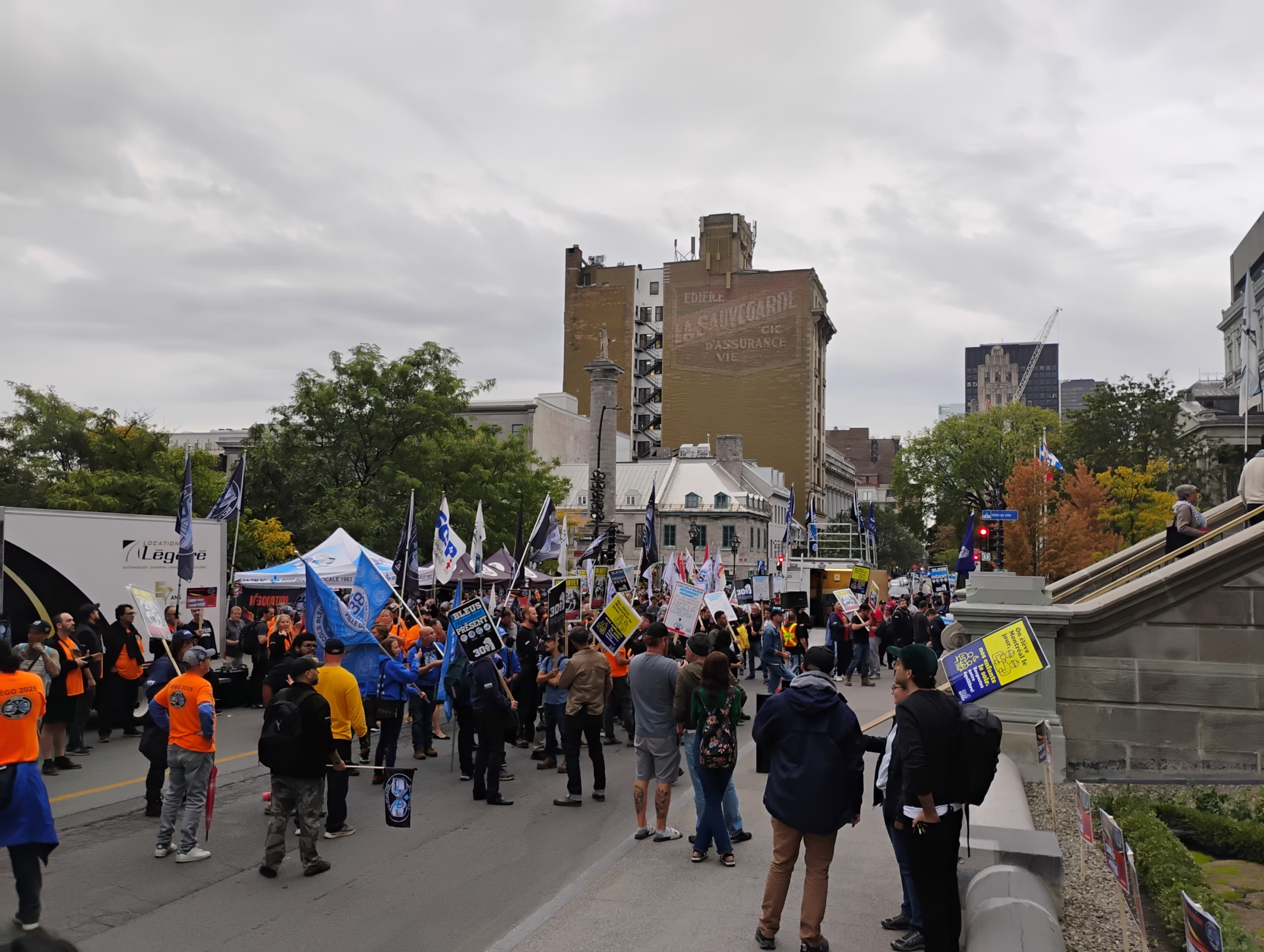Since Monday, maintenance staff at the Société de transport de Montréal have been on strike. In early September, the city’s blue-collar workers voted in favour of pressure tactics to force the city to negotiate in good faith. The North Star attended a demonstration that brought together the two groups of workers to fight together against the municipal administration.
On Monday afternoon, workers from several unions gathered in front of Montreal City Hall in a demonstration organized by Montreal blue-collar workers and STM workers. Many union members agree that outsourcing and privatization are major issues for public services in Quebec and Montreal.
Simon Biard, a union delegate from the Syndicat des Cols bleus regroupés de Montréal (SCFP 301), explains: “When workers share the same demands, the same grievances, the same complaints, why not join forces? Employers are very good at joining forces, so why shouldn’t the working class do the same?”
He goes on to say that, unlike outsourcing, in-house work with a public mission to serve citizens ensures quality work free from collusion and corruption.
Nearly 7,000 blue-collar city workers have been without a contract since 2022. In addition to pressure tactics, union members 98 per cent voted in favour of a strike mandate, signalling deep discontent with the offers presented by the City.
Meanwhile, maintenance workers at the Société de transport de Montréal (STM) are on strike from September 22 to October 5. This is their second strike this year.

The STM announced in February this year that all paratransit services provided by minibus would be entrusted to private carriers starting in 2026. However, in 2024, STM paratransit trips saw an 11.7% increase with 4.1 million trips and a customer satisfaction rating of 86%.
Outsourcing and privatizing services to citizens can cause quality issues, says Bruno Jeannotte, president of the Syndicat du transport de Montréal, which represents the striking maintenance workers.
“When we turn to external private companies, we realize that reliability is not there. I often cite the REM as an example, because the REM really struggles to be reliable. Let’s not forget that there have been requests made to the STM to reduce its number of buses to force people to take the REM.”
In addition to the reliability issues of private companies, there are also cost issues. “We see that prices quickly become unreasonable when we do business with outside contractors. So one thing that is certain is the Charbonneau Commission’s recommendation to favour in-house services when we have the workforce to do so,” says Frédéric Therrien, president of CUPE Local 1983. CUPE 1983 represents STM bus drivers, metro operators, station agents, and STM paratransit drivers.
In 2022, the STM was criticized for significant shortcomings in awarding contracts to private companies for work at the Bellechasse transportation centre. The project costs effectively doubled.
While Executive Director Marie-Claude Léonard received $474,324 in employment income for 2024, the STM claims to be in financial crisis. However, according to the 2024 annual report, the company balanced its budget thanks to $36 million in optimization, a $15 million reduction in expenses compared to the initial budget, and $14 million more than expected in commercial revenues.
Of these savings, $18 million was returned to the Autorité régionale de transport métropolitain (ARTM) to fund public transit. More than 90% of the STM’s revenue comes from the ARTM.
On Saturday, the Syndicat du transport de Montréal–CSN announced that it would present a new plan to the employer. “The ball is in the employer’s court,” said Bruno Jeannotte.


Be part of the conversation!
Only subscribers can comment. Subscribe to The North Star to join the conversation under our articles with our journalists and fellow community members. If you’re already subscribed, log in.